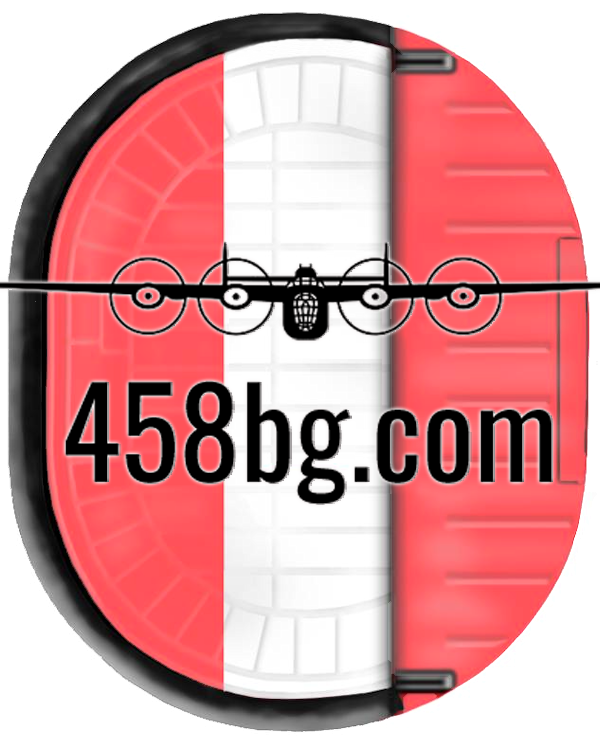Crew 13 – Assigned 752nd Squadron – October 1943
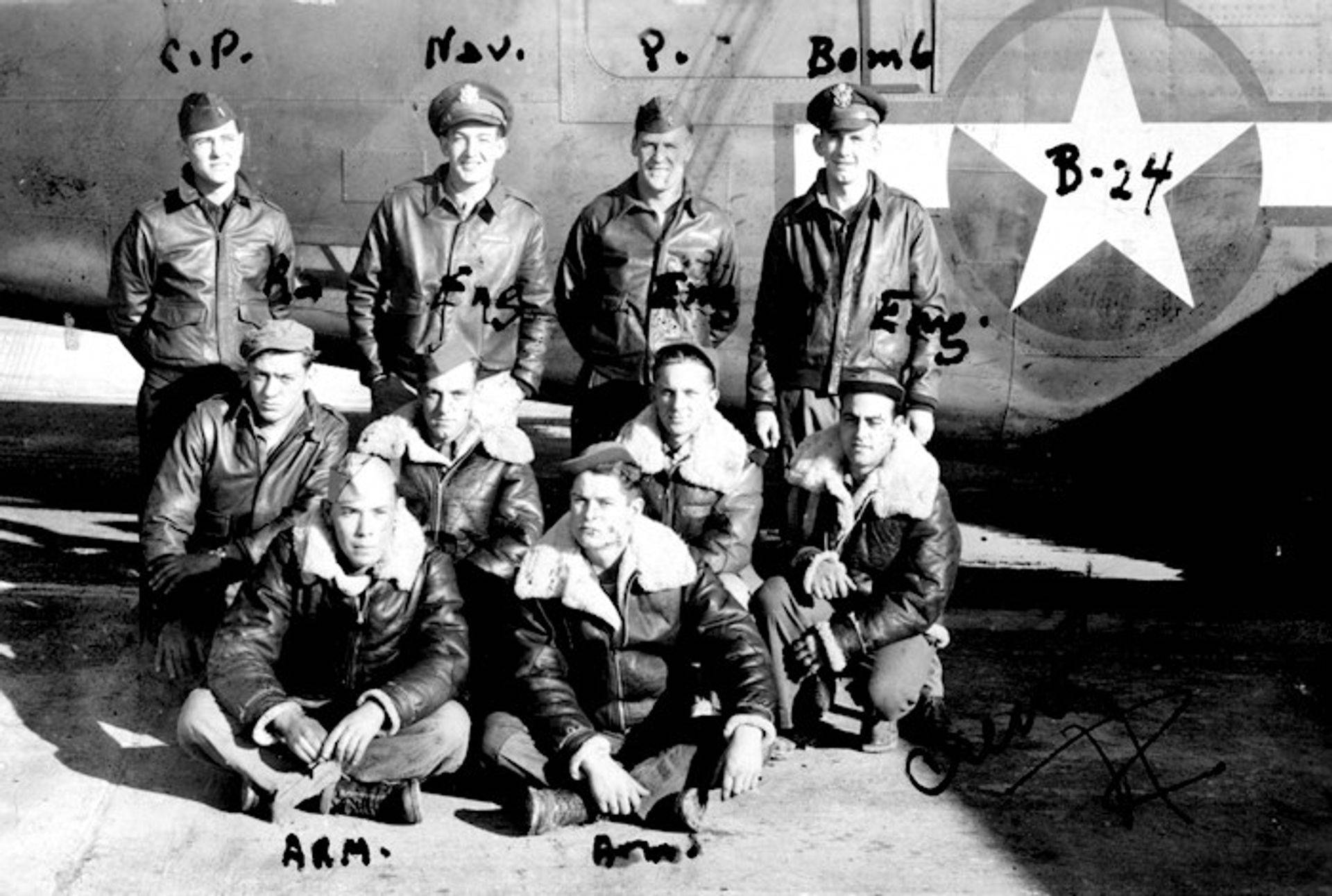
Interned in Sweden April 9, 1944, Easter Sunday – MACR 3835
| Rank | Name | Serial # | Pos | Date | Status | Comments |
|---|---|---|---|---|---|---|
| 1Lt | Walter E Mangerich | 0747292 | Pilot | 09-Apr-44 | INT | Force landed in Sweden |
| 2Lt | Fred L Buckner | 0811002 | Co-pilot | 09-Apr-44 | INT | Force landed in Sweden |
| 2Lt | Julius Needelman | 0810715 | Navigator | 09-Apr-44 | INT | Force landed in Sweden |
| 2Lt | Eric W Rood | 0752907 | Bombardier | 09-Apr-44 | INT | Force landed in Sweden |
| S/Sgt | Oscar L Chambers | 15382168 | Radio Operator | 09-Apr-44 | INT | Force landed in Sweden |
| S/Sgt | John G Spadone | 32573790 | Flight Engineer | 09-Apr-44 | INT | Force landed in Sweden |
| S/Sgt | Walter F Bogdanowicz | 16126892 | Ball Turret Gunner | 09-Apr-44 | INT | Force landed in Sweden |
| Sgt | Eugene R Bonner | 19003394 | Waist Gunner | 09-Apr-44 | INT | Force landed in Sweden |
| Sgt | Walter E Zacek | 32251645 | Aerial Gunner | 09-Apr-44 | INT | Force landed in Sweden |
| Sgt | William P Murray | 34600950 | Tail Turret Gunner | 09-Apr-44 | INT | Force landed in Sweden |
Crew 13 trained with the group in Tonopah in late 1943 and moved overseas with them in January 1944. They flew a B-24 named Gator (Flight Engineer John Spadone painted the artwork on the nose) to the UK, but most of their missions were flown aboard another 752nd Squadron ship named Fritzi. Their 11th mission on April 9, 1944 found them in an aircraft nicknamed Jayhawker, which had been the aircraft of F/O Harold W. Hetzler and crew. Hetzler, a native Kansan, and his crew had been lost, ironically in Fritzi on March 23, 1944.
————————-
MACR 3835
An E/A was seen to hit Mangerich’s #3 engine over Kadet Channel. The engine was on fire, but was successfully feathered. However, plane could not keep up with the formation despite having salvoed bombs and he circled, losing altitude. The A/C was under control as it left the formation and was last sighted headed back towards Laaland, Denmark.
Missions
| Date | Target | 458th Msn | Pilot Msn | Serial | RCL | Sqdn | A/C Msn | A/C Name | Comments |
|---|---|---|---|---|---|---|---|---|---|
| 02-Mar-44 | FRANKFURT | 1 | 1 | 41-29329 | L | 7V | 1 | FRITZI | |
| 06-Mar-44 | BERLIN/ERKNER | 4 | 2 | 42-52335 | R | Z5 | 4 | ADMIRABLE LITTLE CHARACTER | |
| 08-Mar-44 | BERLIN/ERKNER | 5 | 3 | 41-29329 | L | 7V | 2 | FRITZI | |
| 09-Mar-44 | BRANDENBURG | 6 | 4 | 41-29329 | L | 7V | 3 | FRITZI | |
| 16-Mar-44 | FRIEDRICHSHAFEN | 8 | 5 | 41-29329 | L | 7V | 5 | FRITZI | |
| 18-Mar-44 | FRIEDRICHSHAFEN | 9 | 6 | 41-29329 | L | 7V | 6 | FRITZI | |
| 24-Mar-44 | ST. DIZIER | 13 | 7 | 42-52457 | Q | 7V | 5 | FINAL APPROACH | |
| 26-Mar-44 | BONNIERES | 14 | 8 | 41-28709 | I | 7V | 7 | LUCKY STRIKE | |
| 27-Mar-44 | BIARRITZ | 15 | 9 | 41-29352 | 7V | 7 | WOLVE'S LAIR | ||
| 05-Apr-44 | ST. POL-SIRACOURT | 16 | 10 | 41-28667 | F | 7V | 6 | JAYHAWKER | |
| 09-Apr-44 | TUTOW A/F | 18 | 11 | 41-28667 | F | 7V | 8 | JAYHAWKER | LANDED IN SWEDEN |
Crew 13 aircraft
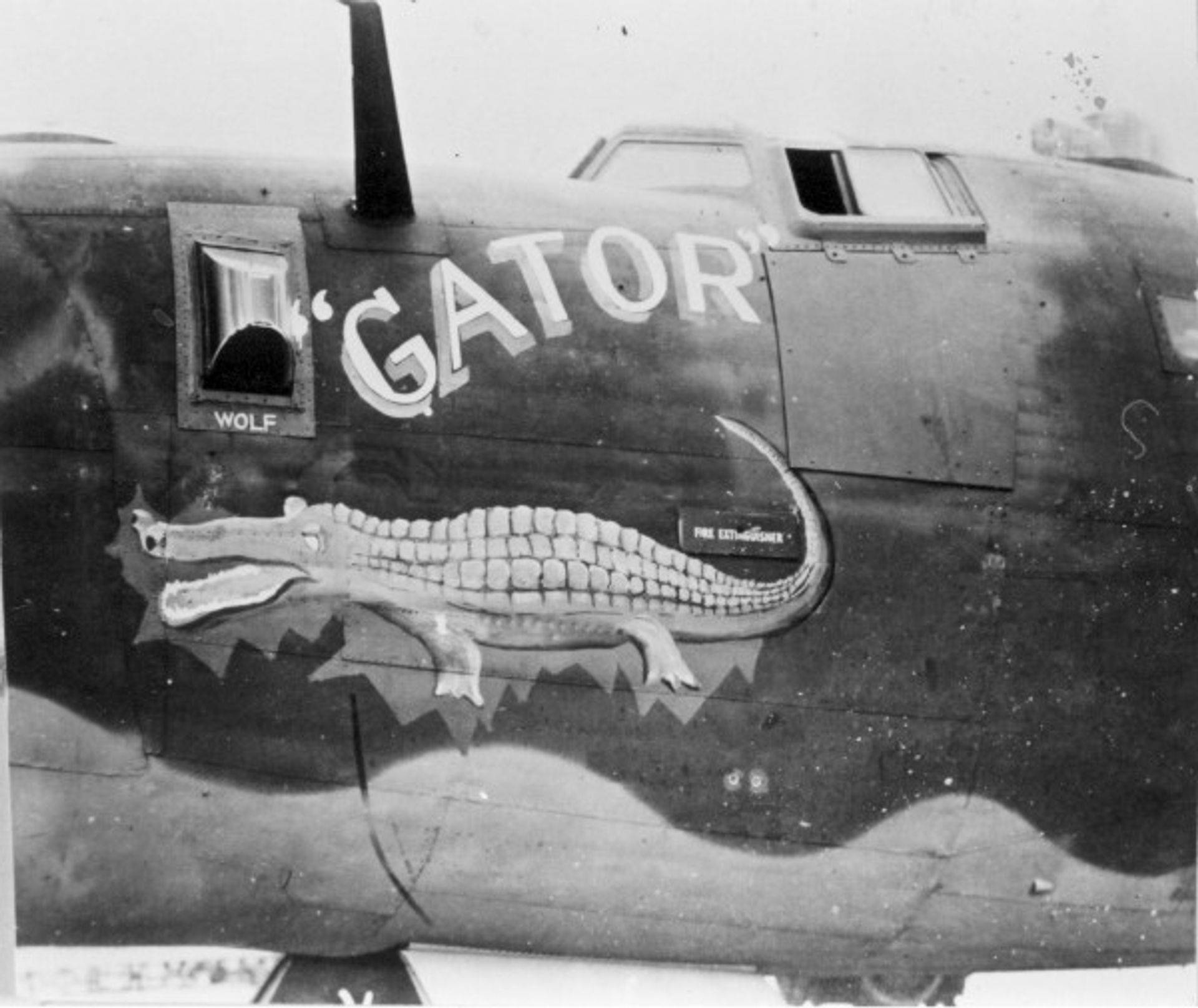
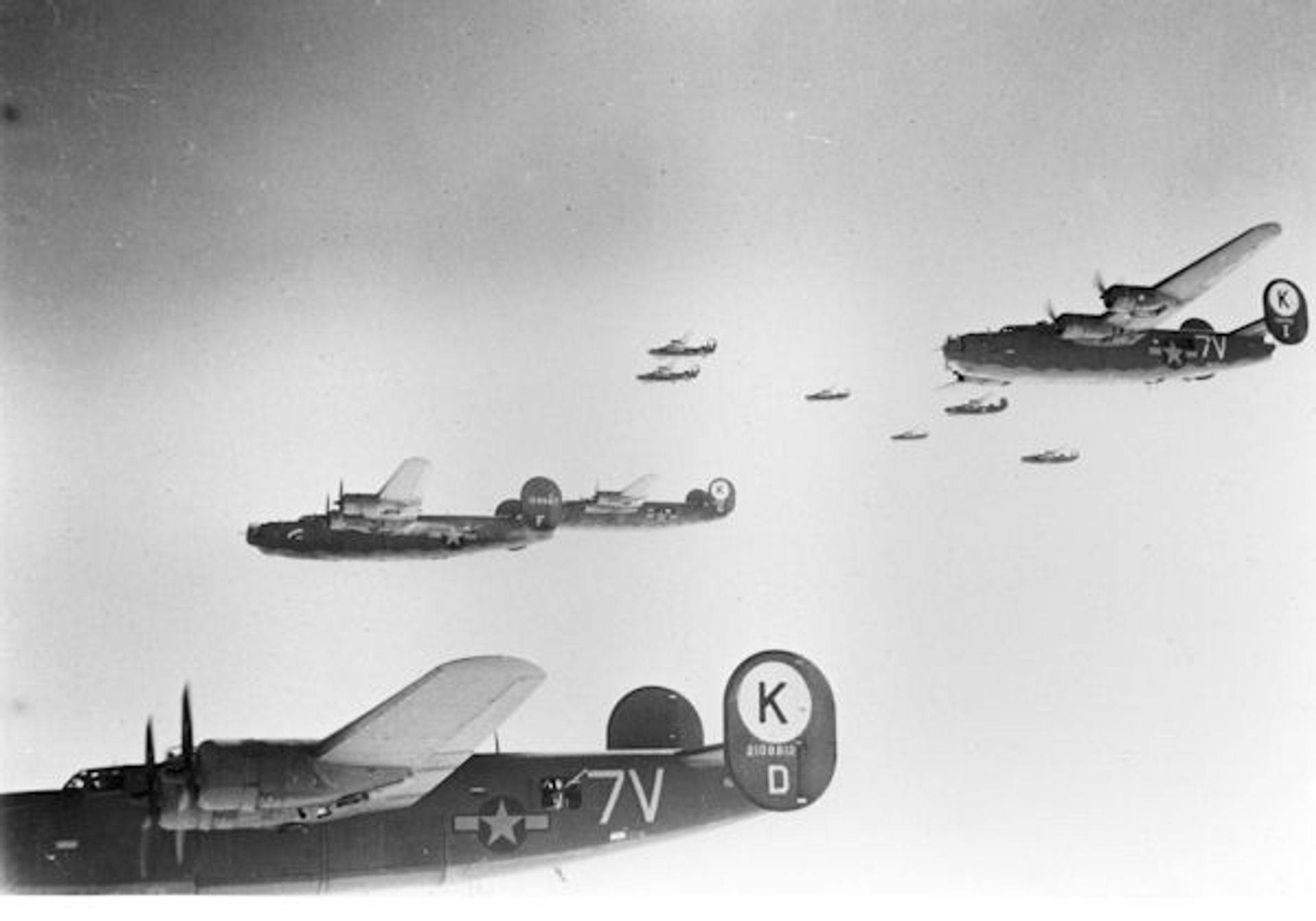
Two aircraft flown by Crew 13: Jayhawker (middle left, no ‘Circle-K’) and Lucky Strike (foreground)
1Lt Walter E. Mangerich – Pilot
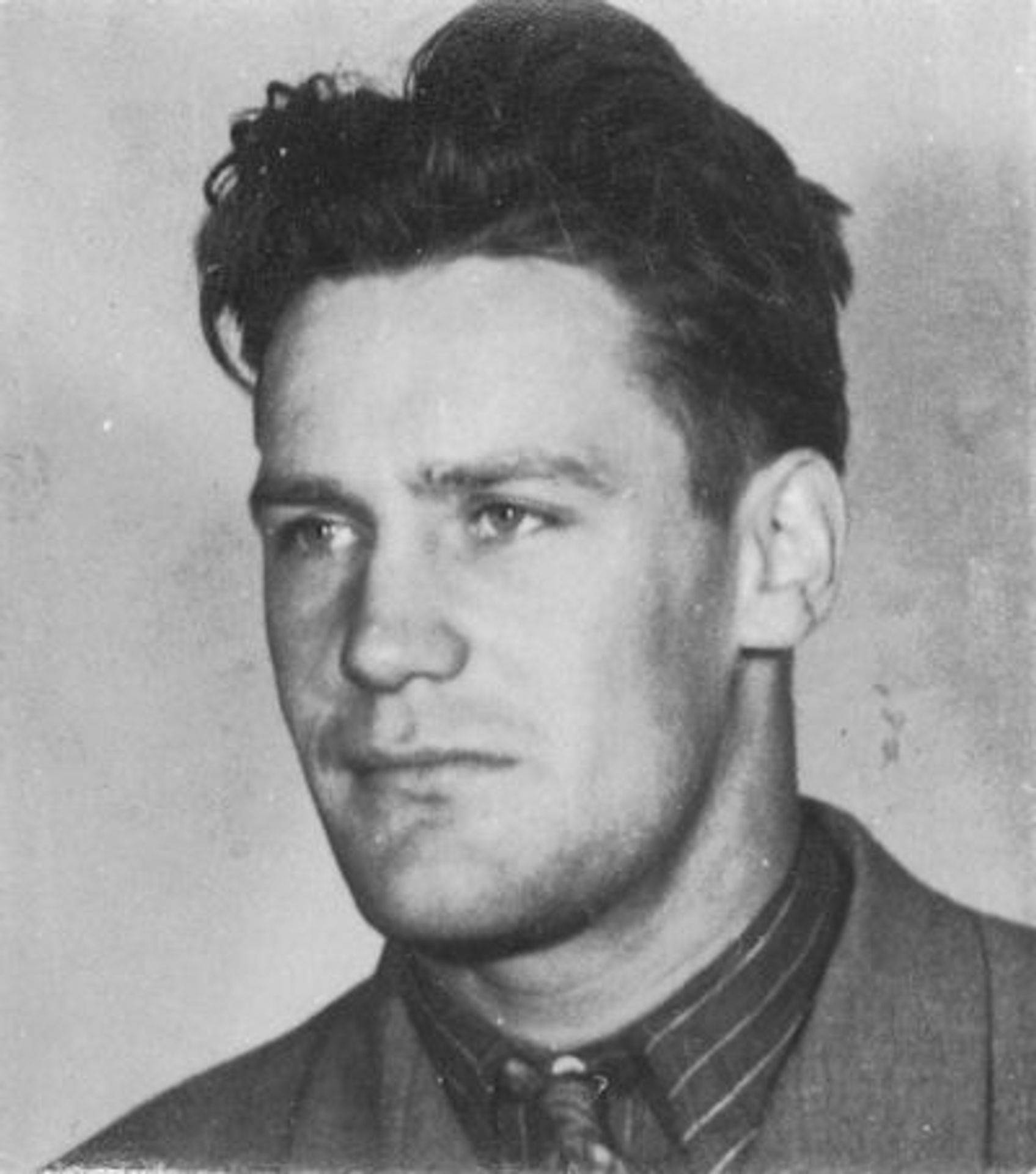
On Easter Sunday, 9 April 1944 our crew was scheduled to go on a mission to Tutow in western Germany to bomb an airfield. The weather was marginal at take-off time and we had to fly through an overcast on instruments to reach assembly altitude. Because of the poor weather and the large number of planes attempting to assemble in such a small area there were several mid-air collisions and many crews were not able to find their leaders and had to join other formations. We found our group and proceeded to a landfall in Denmark with little disturbance.
As we were getting close to the target area we were attacked by fighter planes and there were no friendly planes in sight. I had a clear view of the plane that attacked us head on, and over the right wing. His guns knocked out our number 3 engine and set it on fire. Fortunately we were able to put out the fire. We salvoed the 10x500lb bombs, trimmed up the plane and by adding a little power, we were able to join the formation, but it wasn’t for long. Soon the cylinder head temperature on the number 4 was steadily creeping up to the red danger point. The oil pressure went down to zero. I decided to shut it down while I could still feather the prop. Apparently the oil line had been damaged in the attack.
With the help of the co-pilot, the plane was stabilized and I cranked in enough trim to make it flyable. We could no longer stay with the formation so we peeled off, did a 180° turn and headed back.
I planned to re-trace our course which was presumably the safest, but not the shortest. About that time the engineer came forward and said we had a severe gas leak and were very vulnerable to more fire or explosion. We shut down all the generators and the possible spark producing equipment and I told him to monitor our gas loss for a given period. Nobody was allowed to smoke. It soon became clear that we would not have enough gas to make it back to England, so rather than land in enemy occupied territory, we steered a course for Sweden. Meanwhile, all available fire extinguishers were located and made ready for use.
The navigator located a field at Malmo and gave me a course heading. When we entered Swedish territory we were joined by two fighters as escort. About that time somebody decided we should destroy our “secret” documents on board (the bombardier had already destroyed the Norden bomb sight). We were very close to the field when we executed a 360° turn to facilitate the shredding and to permit them to scatter the remains to the wind. The escort pilots thought we were leaving and fired some warning shots. After we completed a wide circle, we headed to the field and made a tricky landing.

We were led to a parking area. When the plane stopped, several crew members exited carrying the fire extinguishers. This excited the Swedish soldiers who made threatening gestures until I found one who spoke English and explained we were concerned about fire. We were led off to a barracks under guard and given something to eat. Later in the day a representative from the American Embassy explained our status. We became internees and from then on our life was similar to the other internees, which is well documented. We were repatriated in November 1944, returned to England to fly again, but before we were able to go on a mission, the Pentagon said no more internees on missions.
Crew 13 Lands in Sweden
This short video clip shows the Jayhawker landing in Malmo, Sweden on April 9, 1944 with 1Lt Walter E. Mangerich. Notice No. 3 engine is feathered.
This footage of USAAF airmen (from the same Swedish documentary) contains a brief clip of members of the Mangerich crew after they had landed.
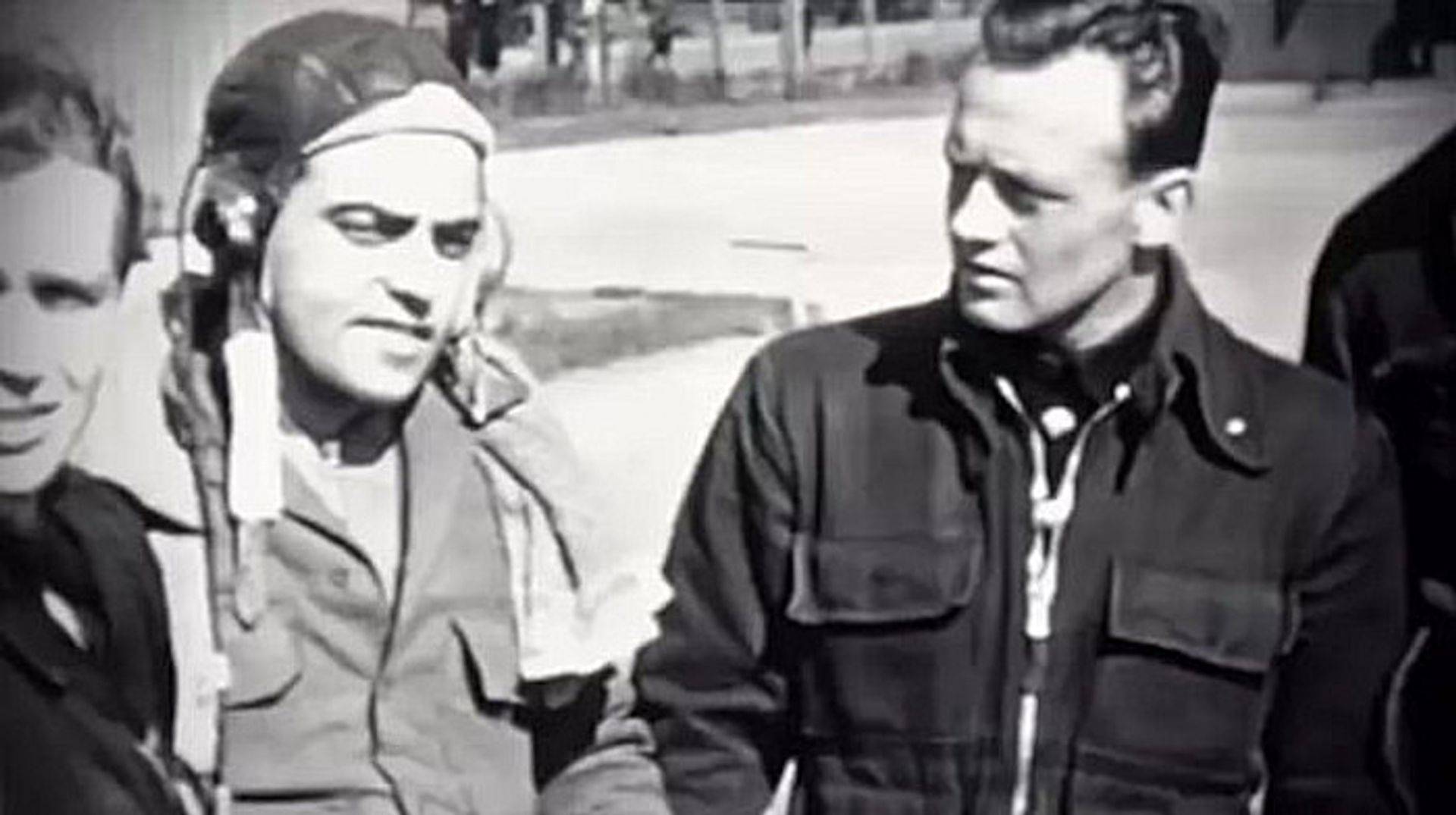
Interned
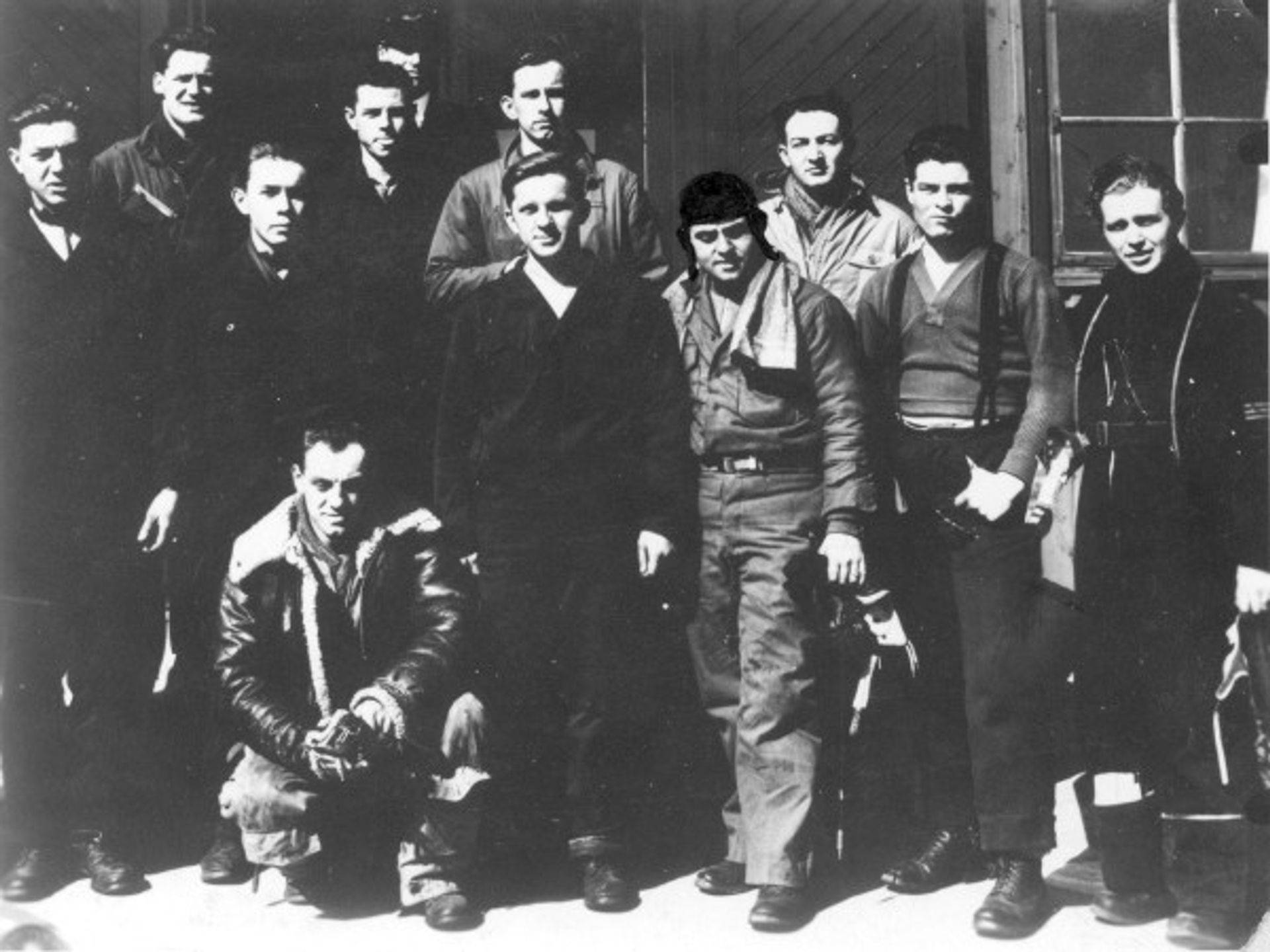
B-24H-5-DT 41-28667 7V F Jayhawker
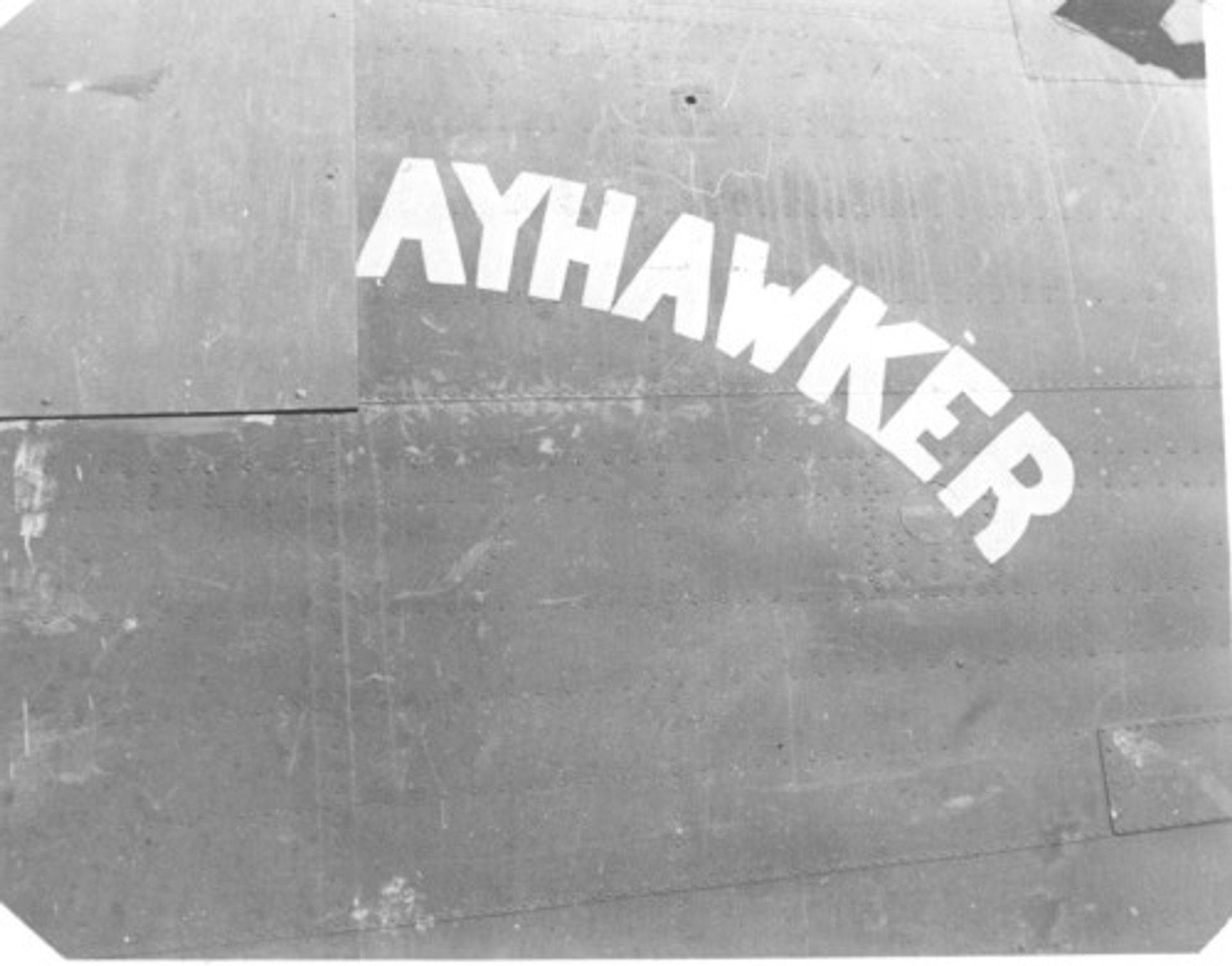
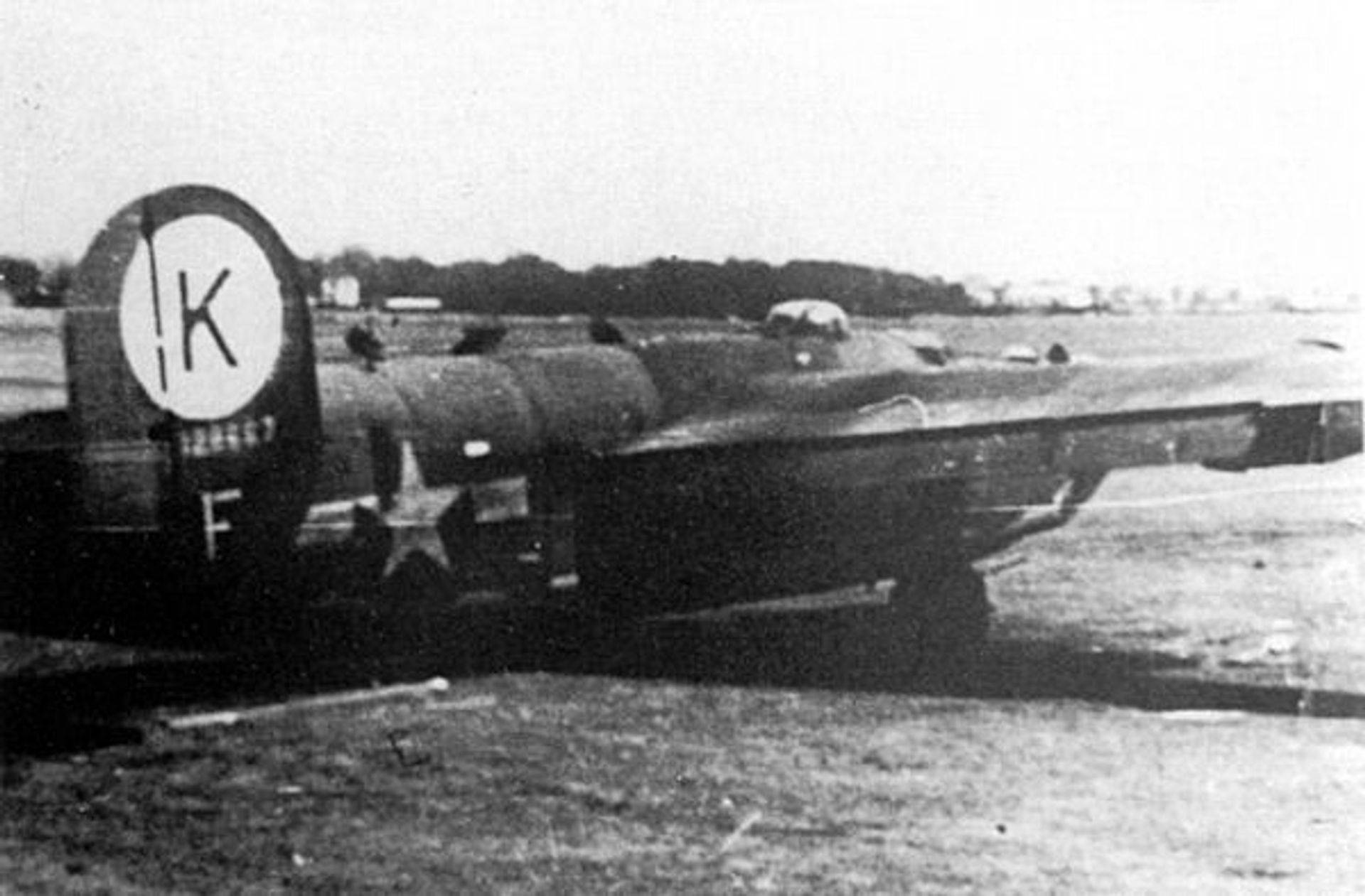
At Bulltofta Aerodrome, Malmo Sweden
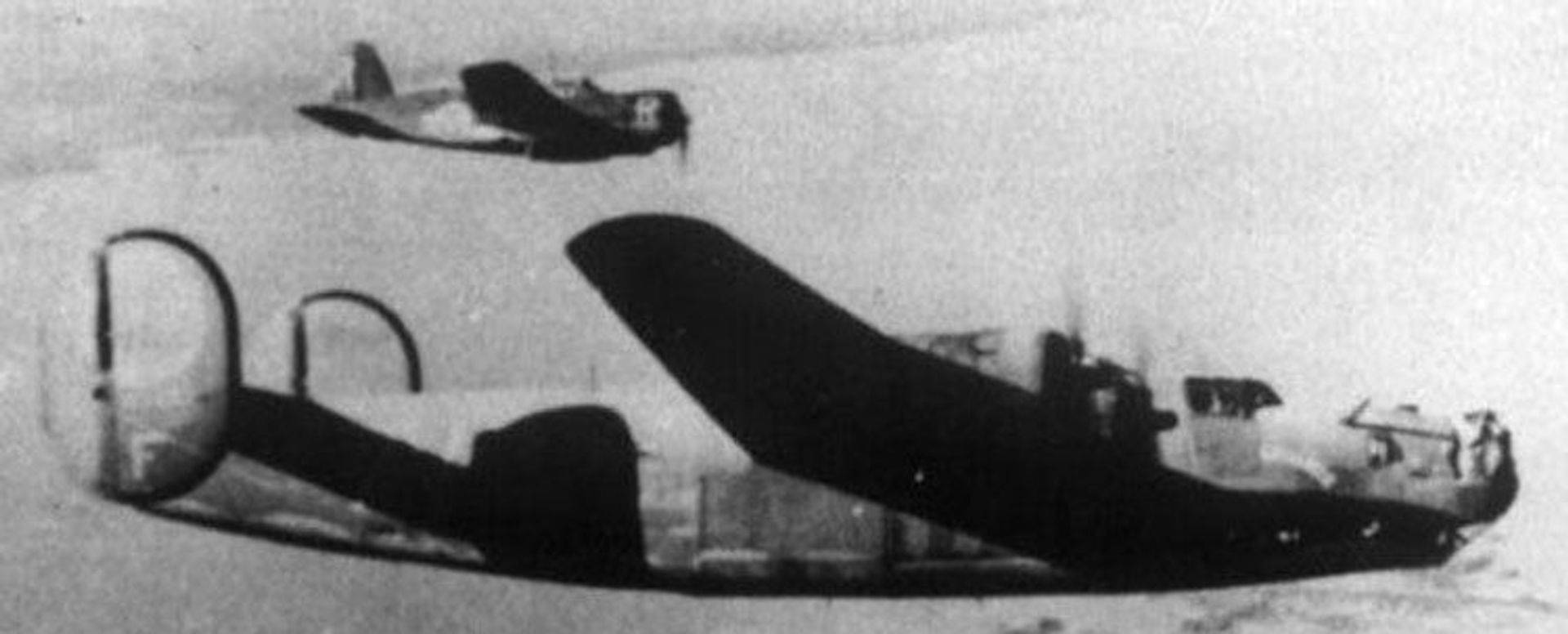
Jayhawker in flight, escorted by Swedish SAAB 17 Enroute to Västerås, Sweden.
(Courtesy: B24BestWeb)
The life of an Internee…

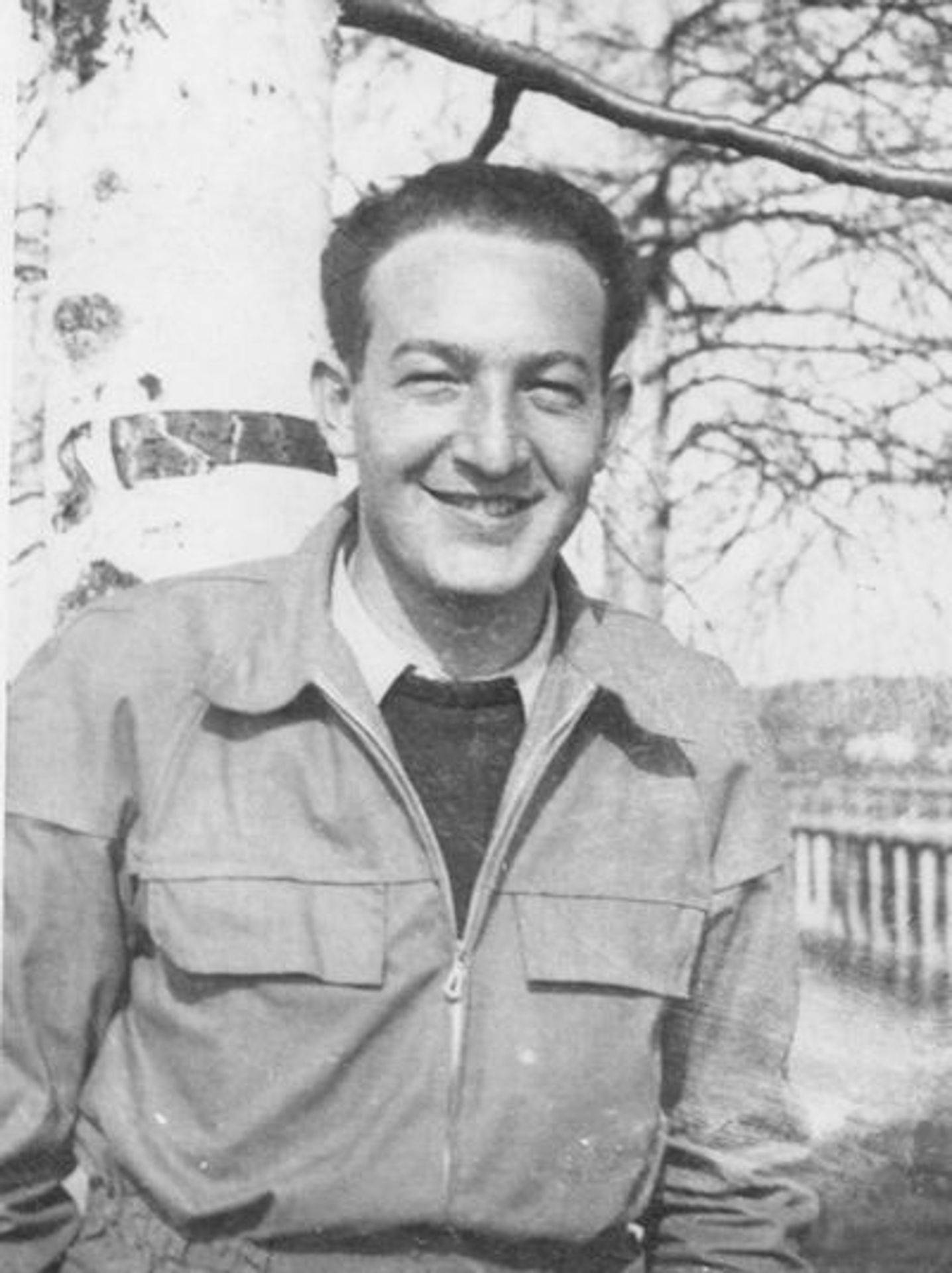
Walter Mangerich and Julius Needleman


Fred Buckner and Eugene Bonner
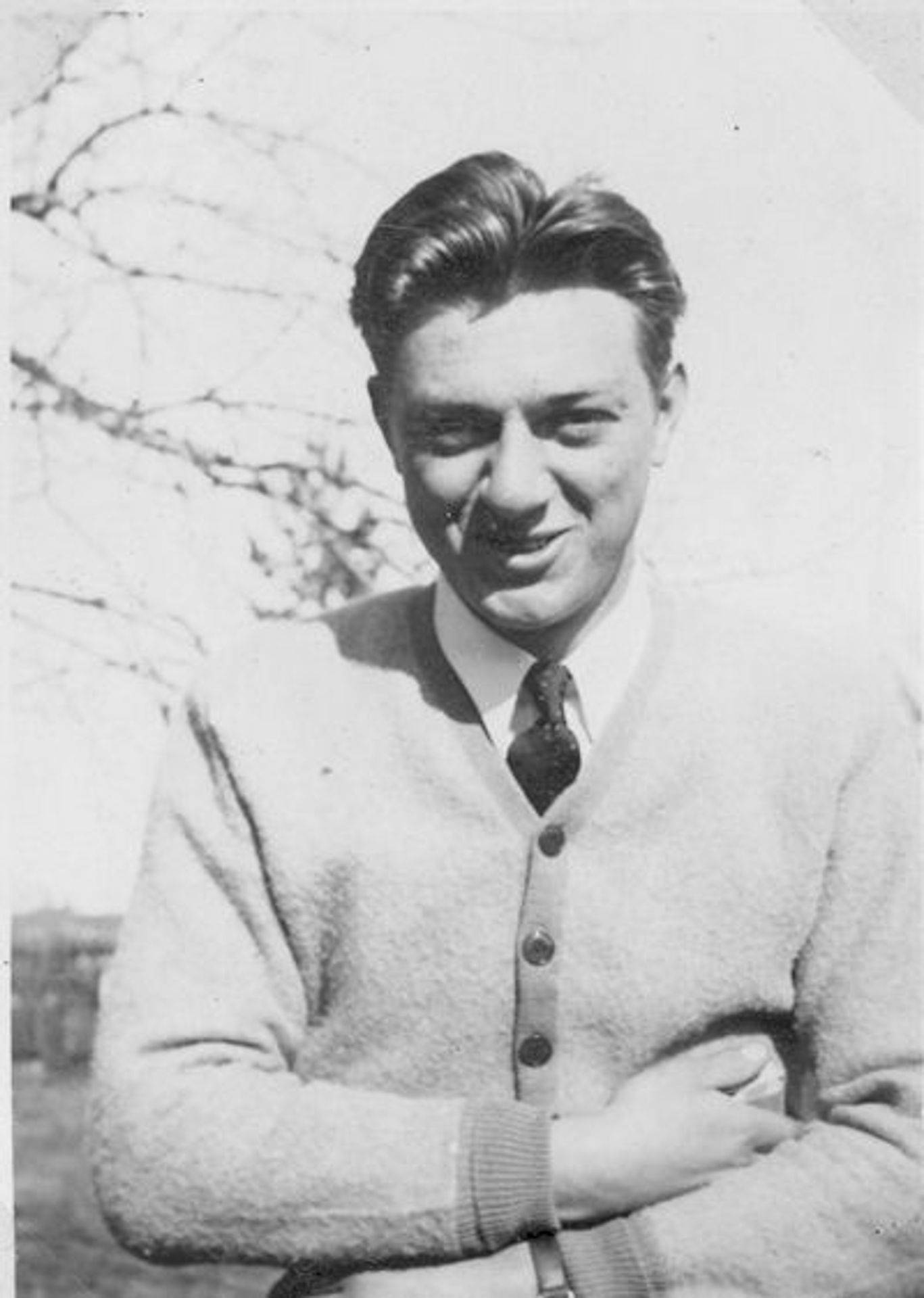

Oscar Chambers and Eric Rood
S/Sgt John Spadone
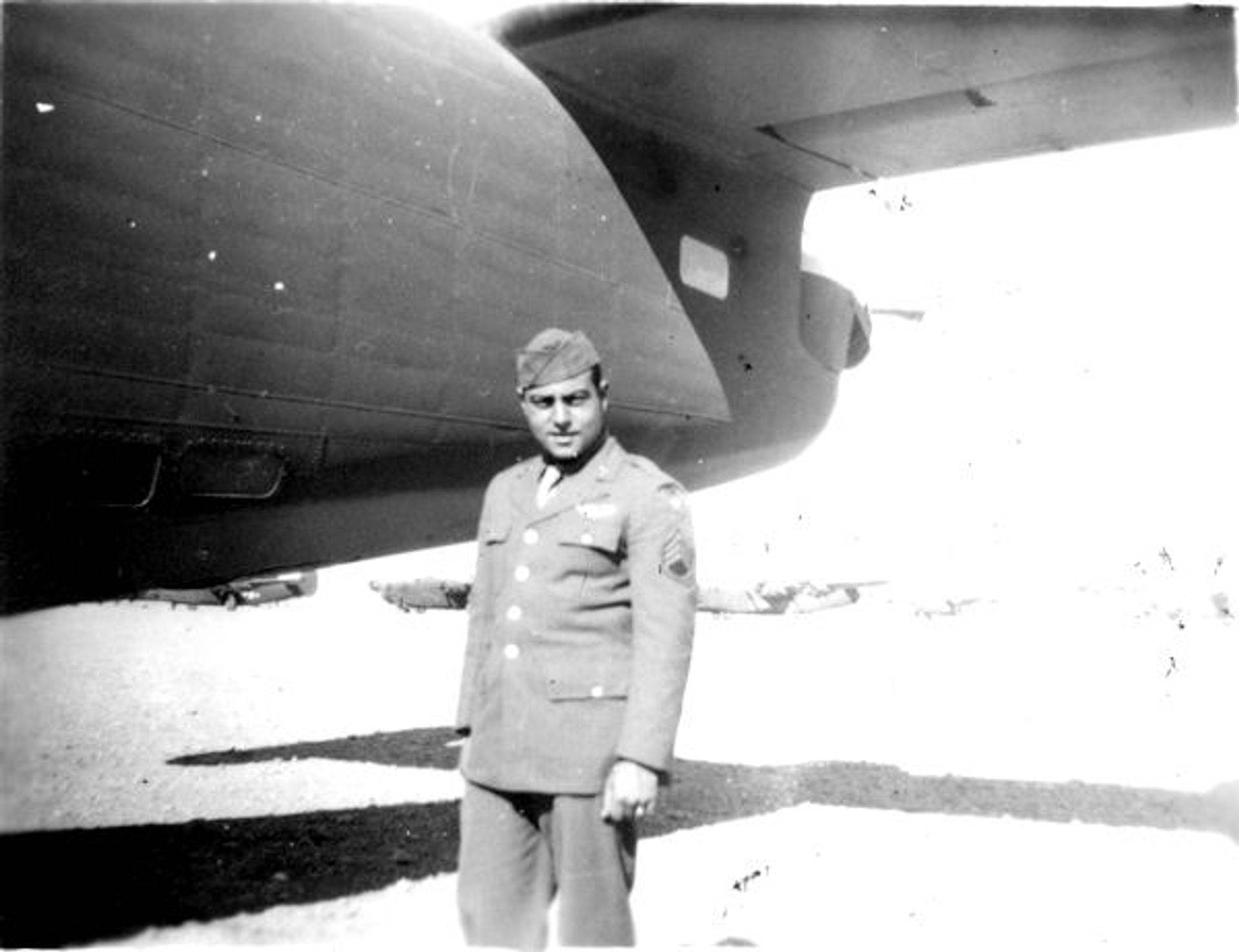
In Tonopah, Nevada1943

With his future wife in Germany
All photos courtesy John Spadone
